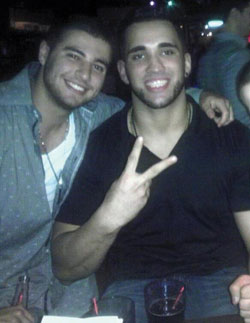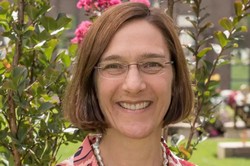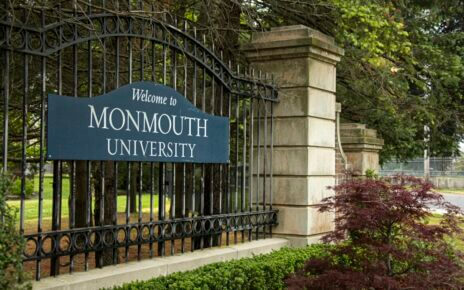As the University’s Institute for Global Understanding (IGU) continues in its exploration and analysis of films related to displacement, identity, and resilience, the IGU hosted its fourth feature Wednesday, March 16 as a part of the World Cinema Series. This month’s event showcased the 2019 documentary, For Sama, a Syrian-based production directed, filmed, and produced by journalist and activist Waad Al-Kateab. Al-Kateab’s purpose in making the film was to highlight the female experience behind the Syrian civil war. Her incorporation of first-hand war footage along with the addition of raw, tender moments won the film numerous awards.
According to host and professor of history Thomas Pearson, Ph.D., “The film weaves forward and backward in time, which really underscores the cinematic and emotional impact.” These contrasting moments of light and dark underscored what was reality for many Syrian citizens. “While they were truly suffering, and while the bombs were falling, they had to manage and they had to live life and continue on,” said faculty discussant, Professor Saliba Sarsar, Ph.D. For Sama was the ninth film for which Sarsar was invited as a keynote speaker; he now holds the record for the greatest number of appearances for the World Cinema Series.
During his address, Sarsar discussed the history behind the film. He recounted the history of the Syrian Civil War, beginning with the Arab Spring in the early 2010s and escalating to military intervention and the demolition of major cities. The battle in Aleppo, the main city depicted in For Sama, was dubbed “the mother of battles” by many scholars. “This battle was marked by widespread against civilians: repeated targeting of hospitals and schools, indiscriminate airstrikes, and chemical weapons,” explained Sarsar.
The second faculty discussant was Professor Sanjana Ragudaran, Ph.D, who talked primarily of the human dimensions of war, emphasizing points centered around the female perspective. “In the film, you are truly seeing this war from a female perspective– we need more of that,” said Ragudaran. She then spoke of how war impacts the relationship between mother and child. “When you hold your baby while bombs are falling around you, the baby can sense the faster heartbeat– they can sense that fear,” she said.
Ragudaran asked the audience to consider the long-term effects of war on children. “We keep hearing about how the lack of socialization has affected our children because of the pandemic–think about these children in war,” she exclaimed.
In addition to analyzing the impact of war on basic human development, the panel also discussed issues of displacements. “Professors Sarsar and Ragudaran are very experienced with displacement and migration in their own lives,” said Pearson, “they bring great wisdom, perspective, and empathy”. Based upon their personal experiences, Sarsar and Ragudaran spoke about the crossroads between staying in a war-torn country and fleeing for personal safety. “That is their home,” she said, “and there is a sense of resilience in them staying that we need to appreciate.”
Another major theme of the panel discussion was the role of technology in modern warfare, which has revolutionized international communication within the past two decades.
“Many of the demonstrators during the Arab Spring, including Waad, used cell phones to record what was going on,” said Dr. Pearson. Sarsar added, “During this time, young people armed with cameras and social media called for political freedom and an end to corruption.”
Pearson quoted Al-Kateab directly, urging both politicians and citizens in the West to not only sympathize but to stand up for people in war-torn countries. “Do something to make sure these things don’t continue to happen,” Al-Kateab pleaded. Similarly, Sarsar encouraged students at Monmouth University to take action. “You need to do something whether it is contributing money, volunteering your time, or reaching out to people in need,” he said.



